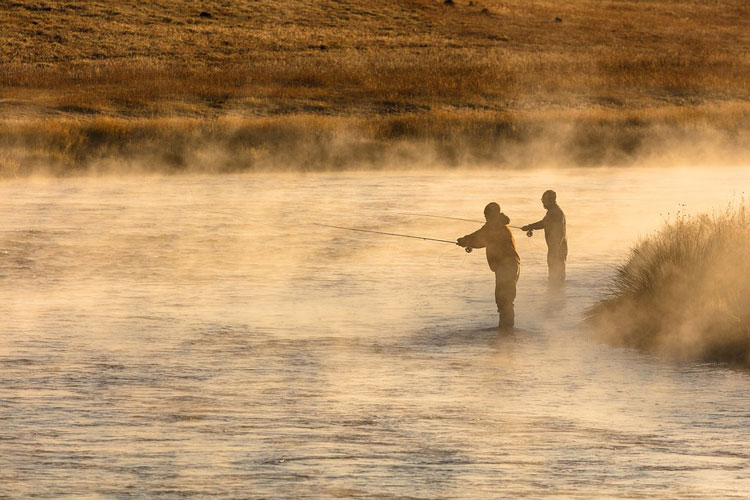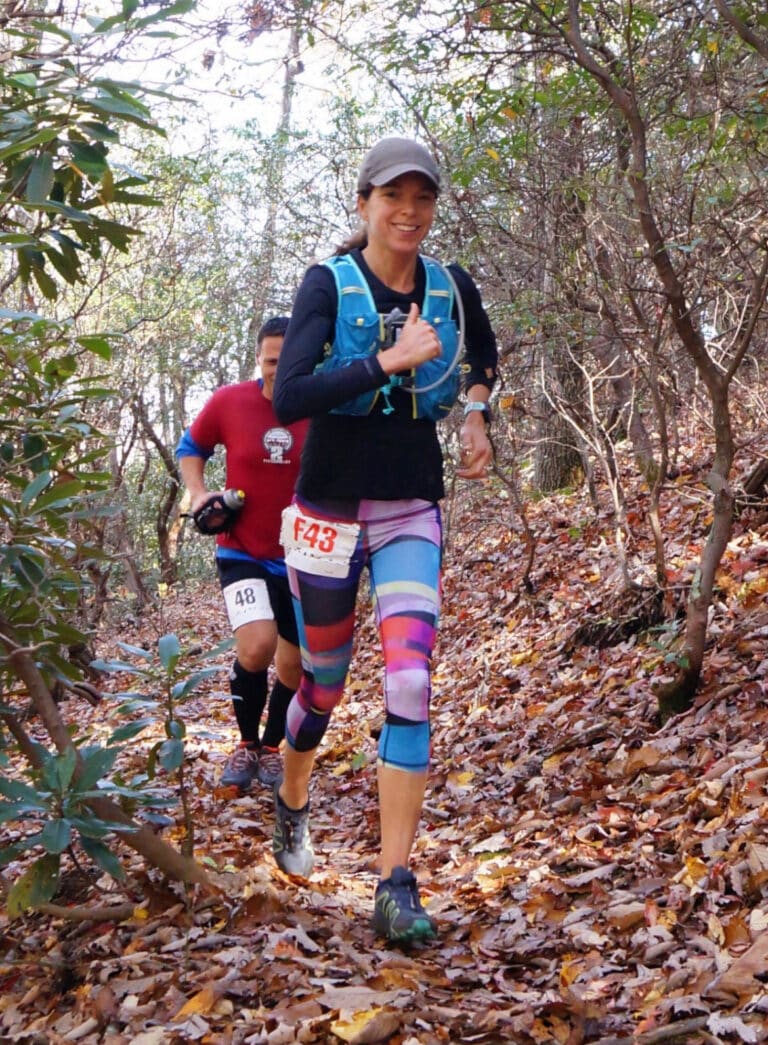The comfort of home waters for fly fishing companions
“I will go to the bank by the wood and become undisguised and naked, I am mad for it to be in contact with me.”
–Walt Whitman
After the ragged edges of winter have worn smooth and spring begins to unfold along the Blue Ridge, it’s time for that first trip of the season to a favorite trout stream, a trip marked by enthusiastic anticipation and wary trepidation. Glad to be back in that stream you know like an old friend but anxious about what the winter has done. That tangle of leaves and branches clogging the tail of that crescent-shaped pool, the mess deposited by last winter’s run-off—will this winter’s run-off have been strong enough to clear it out? That dying hemlock that for so many years has provided cover to the big trout in that wide, glassy pool—will it have finally come down, altering irrevocably the rhythm of life in that pool, for trout and angler alike? How many beer cans and barbecue grills will have been lodged along the bank, carried here in the winter run-off from backyard refuse heaps upstream?
Will the fish be where you left them last year?
When my fishing companions and I return each year to trout waters we’ve stalked for years, we slip easily and comfortably into a language and frame of reference specific to our experience in this place. Sprawled under a tree streamside, gnawing on some fistful of lunch we’ve pawed from our fishing vests, we recount in that language the morning’s fishing and our plans for after we split up again and go in search of what the afternoon hatch will bring to the surface.
“Took a nice rainbow in that pool up past the fork, where the current scoots along the left there, right by that old sycamore down along the bank.”
“Right there, where it shoots into the pool beside that pine snag that washed in there a
“Must have been three or four good-sized browns holding in that pocket between those two strands of current. Where that fawn waded in and walked right up to us that time. You know the spot.”
And we do. We know the spot. Out of this snarl of esoteric, localized chatter, we understand each other with complete clarity. We nod our heads in agreement and confirm each other’s reports with our own. “Yeah, sure—that’s a good pool—tricky casting with all the overhang, but some good fish there.” Yes, we know the spot.
Anglers often refer to such streams as “home waters,” those rivers and creeks fished so often, that we know so well they’ve become a part of our flesh, that our blood seems mingled with their waters. When standing knee-deep in these waters, casting to a rising trout, our separate selves are no longer so. No longer contained within the boundary of our skin, we can reach beyond it. If we’re paying attention and we do it right, and if we’re a little lucky, the gap between domesticated human and wild river closes, one creature absorbing the other into itself.
This is intimacy. Out of the flood of often inscrutable words swirling around us, intimacy may be what we seek. To know a place so intimately, cherish it so fully, that it becomes so utterly interwoven with the pulse of your life it’s impossible to imagine that life otherwise. And to do so would lead to nothing short of profound grief. The intimacy of waters. As with a beloved spouse or lover, we know where we will encounter the rough currents and where the waters will open out into smooth, placid pools. We know if we caress that one spot with patience and wisdom, it will respond in an explosion of pleasure. We know of that one spot, so thrilling but so sensitive, we will be allowed only one cautious touch, if we dare. We know when to speak in carefully chosen words and when not to speak at all. With such intimacy, the well-being of the beloved, be it lover or river, is contiguous with our own well-being. A condition never to be fouled, abused or taken for granted—always to be revered, respected, nurtured and loved.
This cloud of metaphor aside, some anglers will say that, in the end, it’s about the fish. Probably so. But still, for so many of us who wade into the middle of a river, wearing rubber pants and wagging a stick over our heads, the river, and the fish in it, lead us beyond the pounds and inches of the simple catch. Fishing is the ritual enactment of that intimacy, to connect to
Fishing is, at heart, a narrative act—it’s a fiction, of course, but if we craft it, present it, and tell it well, make the simulation believable—if we tell the river a good story, the kind of story it waits to hear, a fish will rise. And with each pull of the line that draws the fish closer, the gap between us and that wildness we lack shrinks until, with patience and a little more luck, we’re granted the intimacy of contact with the wild fish in hand.
James Keefe, a character in my novels, has a propensity to strip down to the buff occasionally and fish for his beloved brook trout in the nude, reciting the above words from Whitman when he does so. To be clear, I’m not arguing for naked fishing as a method to achieve that intimacy of which I speak. Trout waters are cold, and the prospect of a trout stream dotted with the naked bodies of other anglers would be an unsettling sight, at the very least. That, and it could scare the fish. But Keefe, for one, has taken Whitman at his word, following those words to their logical extreme, his practice the ritual enactment of that intimate connection with river and trout without which he could not survive, without which he might surely go mad.
Tim Poland is the author of two novels, Yellow Stonefly (Swallow Press/Ohio University Press, 2018) and The Safety of Deeper Water (Vandalia Press/West Virginia University Press, 2009). He lives near the Blue Ridge in southwestern Virginia and is Professor Emeritus of English at Radford University.








